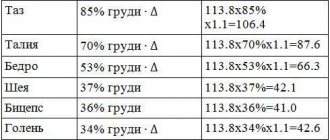The mental development of a child is a very complex, subtle and lengthy process, which is influenced by many factors.
An idea of how this or that stage goes will help you not only better understand your child, but also notice developmental delays in time and take appropriate measures. The generally accepted periodization of the development of the child’s psyche was developed by the Soviet psychologist Daniil Borisovich Elkonin. Even if you have never encountered his works, this system is familiar to you: in the annotations to children's publications it is often indicated that this work is “for preschool age” or “for primary schoolchildren.”
Elkonin’s system describes the mental development of a child from infancy to 15 years, although in some of his works the age of 17 years is indicated.
According to the scientist, the characteristics of each stage of development are determined by the leading activity of the child at a particular age, within the framework of which certain mental new formations appear.
Infancy
This stage covers the period from birth to one year. The leading activity of the baby is communication with significant figures, that is, adults. Mainly mom and dad. He learns to interact with others, express his desires and respond to stimuli in ways accessible to him - intonation, individual sounds, gestures, facial expressions. The main goal of cognitive activity is knowledge of relationships.
The task of parents is to teach the child to “communicate” with the outside world as quickly as possible. Games for the development of large and fine motor skills and the formation of a color scheme will help with this. Among the toys there must be objects of various colors, sizes, shapes, textures. Until one year, the child does not experience any experiences other than natural ones: hunger, pain, cold, thirst, and is not able to learn the rules.
Raising a child from six months to nine months
Raising a child from nine months to a year has its own distinctive characteristics. The psychology of this period is such that by this age the child becomes especially inquisitive and restless. Children already know how to crawl, sit freely on the floor and even try to stand up. This gives them the opportunity to gain greater independence and be even more active in learning about the world around them. At this time, among other things, you need to pay maximum attention to the physical development and upbringing of the child.
A 7-month-old baby is actively exploring the space at home
When children's interest in the world around them grows, it is very important to do everything possible to ensure that cognitive activity does not fade away, but only increases over time.
For full development, he needs to prepare a space for active research: at first, his role will be played by an apartment. Of course, all premises must be secured as much as possible by hiding the wires and removing all sharp and breakable objects away. But it’s still not worth preventing children from freely moving around the house.
8 month old baby is interested in everything around him
At this stage, it is better than ever to introduce massage, educational outdoor games, gymnastics and physical exercises into the child’s daily life. At the same time, it is highly advisable to teach the child to potty and other sanitary and hygienic procedures.
The child is taught to be careful when eating, dressing, falling asleep, etc.
At the age of six months, a child is already quite receptive to speech and can remember the simplest instructions; he can be offered simple finger games. Since by the end of the period the child’s stock of ideas about the world around him will increase significantly, he can already be offered those games that will allow him to demonstrate them in practice. It is also good to encourage children's first attempts to speak, but in no case distorting words and pronunciation of sounds.
At 9-10 months the baby begins to master the world around him.
Accustoming a child to restrictions and prohibitions is another important educational point that the psychology of this age suggests.
While encouraging the right actions, we must not forget about condemning the negative ones. But at the same time, the child must clearly understand what exactly he did wrong and why exactly he received the punishment. The child must respond to comments and any words that limit his actions the first time.
Musical toys and developmental centers are ideal for developing auditory memory, attention, and coordination of movements. Having learned to press the buttons and remembering what they do, the child will quickly find a use for the toy.
Educational toys for babies
Educational game complexes allow not only to properly develop fine motor skills, but also allow the child to remember and later put into practice forms of role-playing behavior.
Early childhood
It lasts from 1 year to 3 years. The leading activity is manipulative-objective activity. The child discovers many objects around him and strives to explore them as quickly as possible - taste them, break them, etc. He learns their names and makes his first attempts to take part in the conversation of adults.
Mental new formations are speech and visual-effective thinking, that is, in order to learn something, he needs to see how this action is performed by one of the elders. It is noteworthy that at first the child will not play independently, without the participation of mom or dad.
Features of the early childhood stage:
- comprehension of the names and purposes of objects, mastering the correct manipulation of a specific object;
- mastering established rules;
- the beginning of awareness of one’s own “I”;
- the beginning of the formation of self-esteem;
- gradual separation of one’s actions from the actions of adults and the need for independence.
Early childhood often ends with the so-called crisis of 3 years, when the child sees pleasure in disobedience, becomes stubborn, literally rebels against established rules, sharp negative reactions increasingly appear, etc.
Neoplasms of infancy
New formations: elementary forms of perception and thinking. First independent steps, words. An active need to understand the world around us. With the appearance of the first words, a new stage in the child’s mental development begins. Between infancy (0-1) and early childhood (1-3) there is a transition period called the “1 year crisis”
External manifestations of a crisis: a child develops affective reactions when an adult does not understand him or forbids him to do something. The child becomes restless, manifestations of independence appear. Internal causes of the crisis: the growing contradiction between the needs for knowledge of the world around us and the capabilities that the child has. Capabilities are still insufficient to meet needs. The main acquisition of the transition period is the peculiar children's speech, which L.S. Vygotsky called it autonomous. It differs significantly from adult speech; its sound sometimes resembles “adult” words, and sometimes differs sharply from them (av-av - dog, titi - clock).
Preschool age
This stage begins at 3 years and ends at 7 years. The leading activity for preschoolers is play, or rather, role-playing game, during which children learn relationships and consequences. The personal sphere of the psyche is actively developing. Age-related neoplasms are a need for social significance and activity.
The child can move independently, his speech is understandable to adults, and he often feels like a full participant in communication.
- He understands that all actions and actions have a specific meaning. When teaching, for example, hygiene rules, explain why this is necessary.
- The most effective way to absorb information is through play, so role-playing games should be played every day. In games, you should not use real objects, but their substitutes - the simpler the better for the development of abstract thinking.
- The preschooler experiences an urgent need to communicate with peers and learns to interact with them.
Towards the end of the stage, the child gradually gains independence, is able to determine the cause-and-effect relationship, is able to take responsibility for his actions, and obeys the rules if he sees them as reasonable. He learns good habits, rules of politeness, norms of relationships with others, strives to be useful, and willingly makes contact.
Painful attachment of a child to his mother: possible difficulties
Causes of painful attachment
Don't confuse love and affection. All children love their mothers, they just do without them for some time, do not require constant presence and are happy to meet them. And for other children, the absence of a mother causes fear. The child constantly seeks and finds support and protection in his mother. The absence of his mother makes him defenseless and vulnerable.
The appearance of painful attachment can be caused by the following reasons:
1. The mother's unconscious desire to become the most important person for the child.
She constantly holds his attention, does not leave him with other people for long, and is jealous of the baby’s communication with other adults.
2. Lack of contact with the outside world.
Sometimes only the mother is involved in raising the baby. There can be many reasons: single mother, absence of grandparents, divorce of parents, heavy employment of other family members. One way or another, the baby spends all his conscious time with his mother, even if he tries to play with other children. He constantly monitors her presence. For a child, a mother is the whole world.
3. Overprotection.
Mothers sometimes take excessive care of their children, depriving them of any independence - guardianship takes painful forms. They convince children that they cannot do anything without their mother. Children unconsciously accept their mother's position and become very attached to her.
Most often, mothers do not realize the problem. They like that the baby cannot live without them. However, you need to worry not about your pride, but about the future of the child.
Consequences of painful attachment
First of all, every parent must understand that he cannot be constantly present in the child’s life. Painful attachment is dangerous not only situationally, but also in its consequences.
Firstly, the child does not live his own life. He does not know how to understand his own desires, needs, preferences. His will is completely subordinated to his mother. She is the one who makes decisions, directs and manipulates. Such a child grows into an adult who is completely dependent on the mother.
Secondly, the child grows up dependent. He cannot organize his day, solve problems, take care of himself, getting used to the fact that his mother always does everything for him. This habit goes to the unconscious level.
Third, the child grows into an anxious adult. His whole life will pass under the motto: “what does mom say.” Living under stress will definitely affect your health.
Fourthly, such a child will not grow up to be a happy adult. A person experiences the greatest happiness when fulfilling his desires and achieving his goals. The absence of voluntary behavior affects the whole life.
Fifthly, they don’t want to be friends with mother’s daughters and sons, they refuse to love them. First of all, this is caused by the constant presence of the mother in person or in absentia. Teenagers don’t like the fact that their secrets become the property of an adult, and adults are simply not interested in a person who is dependent on their mother.
Obviously, painful attachment to the mother does not bring good.
How to deal with painful attachment
The problem is easier to prevent than to solve, so at the first manifestations of painful attachment, think about solving this problem:
- teach your child to stay alone in the room while you are in the next room or in the kitchen;
- involve other family members in parenting, leave the baby with them for 10-15 minutes at first, gradually increasing this time to an hour. At the same time, do not leave silently, but explain to the baby that he will be without his mother for a while. Praise your patience when you return;
- expand your child’s circle of contacts, introduce them to other adults and children;
- do not be jealous of your baby towards other people, include them in your common games;
- develop a unified system of education in the family: daily routine, nutritional rules, common games;
- stop hysterics and protests when trying to leave the baby for a while, negotiate with him;
- extinguish any attempt at groundless anxiety. You must exude confidence, which is passed on to the baby;
- use fairy tale therapy about a similar child who was brave and independent;
- Teach your child self-care skills.
Remember that a child suffering from dependence on his mother, first of all, needs a feeling of calm and security.
Svetlana Sadovnikova
Photo from the site brl.mk.ru
Your child's temperament type
This test will give you an idea of your child's predominant temperament type.
After all, the difference in temperament between parents and children can lead to deep conflicts if you do not realize in time what the problem is. Take the test
Junior school age
This stage lasts from 7 to 11 years and is associated with significant changes in the child’s life and behavior. He enters school, and play activities give way to educational activities. The intellectual and cognitive sphere is actively developing. Age-related mental neoplasms: voluntariness, internal plan of action, reflection and self-control.
What does it mean?
- He is able to concentrate for a long time on a specific lesson: sit quietly at his desk during a lesson and listen to the teacher’s explanations.
- Able to plan and perform tasks in a certain sequence, for example, when doing homework.
- He determines the boundaries of his knowledge and identifies the reason why, for example, he cannot solve a problem, what exactly is missing for this.
- The child learns to control his actions, for example, first do his homework, then go for a walk.
- He experiences discomfort from the fact that an adult (teacher) cannot give the amount of attention that he is used to receiving at home.
A younger student can more or less accurately assess the changes that have occurred in his personality: what he could do before and what he can do now, learns to build relationships in a new team, and obey school discipline.
The main task of parents during this period is to emotionally support the child, closely monitor his mood and feelings, and help him find new friends among classmates.
Adolescence
This is the “transitional age”, which lasts from 11 to 15 years and the onset of which all parents await with horror. The leading activity is communication with peers, the desire to find one’s place in the group, receive its support and at the same time stand out from the crowd. The need-motivational sphere of the psyche develops mainly. Mental neoplasms – self-esteem, desire for “adulthood”.
The teenager is torn between the desire to grow up quickly and to maintain a certain impunity for as long as possible, to relieve himself of responsibility for his actions. He learns about the system of relations between the sexes, tries to build his own, rebels against prohibitions and constantly breaks the rules, fiercely defends his point of view, seeks his place in the world and at the same time amazingly easily falls under the influence of others.
Some guys, on the contrary, immerse themselves in their studies, their transitional age is, as it were, “transferred” to a later time, for example, they may well begin their rebellion even after graduating from university.
Parents face a difficult task - to find a common language with a teenager in order to protect him from rash actions.
Adolescence
Some psychologists identify another stage of mental development - this is adolescence, from 15 to 17 years. Educational and professional activities become the leading ones. Personal and cognitive spheres develop. During this period, the teenager matures sharply, his decisions become more balanced, he begins to think about the future, in particular, about choosing a profession.
Growing up is difficult at any age - at 3 years old, at 7, and at 15 years old. Parents must understand well the characteristics of their child’s mental development and help him successfully overcome all age-related crises, direct the formation of his character and personality in the right direction.
Date of publication: 06/26/2017. Last modified: 05/09/2018.










